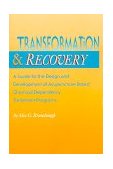Resources for Acupuncture in Chemical Dependency Treatment and Recovery

Clients are treated for 45 minutes seated in a group setting. Talking - especially drug-talk and "war stories" - is discouraged. There are no behavioral or cognitive expectancies, and clients are "free to do nothing." A special blend "detox tea" is also usually served during or following treatment.
Clients are optimally seen on a drop-in basis, with no appointments required. Like the twelve step program, the clinic is "barrier-free" in that there are no motivational or other screening requirements for entering or continuing acupuncture treatment. People are instructed to come as "clean and sober as they can" for treatment, and treatment is recommended daily, in the same "one day at a time" rhythm as recovery. While other treatment and recovery services are usually also held in proximity to the clinic, participation in these activities should not a condition of receiving acupuncture treatment.
Clients do everything they can for themselves, such as "prepping" their own ears with an alcohol solution and cotton. In some clinics, clients select their own personal autoclaved or pre-packaged disposable needles. Often, clients even use a mirror to remove their own needles upon leaving. The staff doing the needling are counseled not to "fuss" with clients, question them as to relapse, or lecture or confront them in any way. Clinic rules are minimal, and clients are barred from treatment only for disruptive behavior. Such instances are rare in this setting.
previous
- Read FAQs in Sequence - next
Index of Articles - Links - Home
Scroll Down for More "Frequently Asked Questions"
How many clients can be treated at once?
How often do clients need to be treated?
How long to clients have to keep having treatments?
Does it matter what time of day the acupuncture is provided?
What
national organizations support acupuncture in treating addiction? What
resources are available to support us if we decide to do it?
Does
the acupuncture program have to include herbs or nutritional supplements?
What
is the history of how acupuncture began to be used in chemical dependency
treatment?
What
does the acupuncture clinic look like exactly?
How
much space and extra equipment will we need to do it?
How
do we clean or dispose of the needles after they are used?
How
does acupuncture fit with drug testing?
How
do we find and train people to do the needling?
Could
we just try it experimentally to make sure it's a good fit for us?
What
technical assistance will be required to start and maintain an acupuncture
component?
Is
it compatible with harm reduction?
Is
it compatible with 12-Step or abstinence-based treatment approaches?
Is
it appropriate for mandated or court-referred clients?
Is
it appropriate for adolescents?
Is
it appropriate for pregnant women?
Is
it appropriate for people with co-morbid psychiatric problems?
Is
it appropriate for people with HIV/AIDS?
Is
it appropriate in methadone programs?
Is
it appropriate in residential programs?
What
training is required for current program and administrative staff?
What are the steps we should take to add an acupuncture component?
